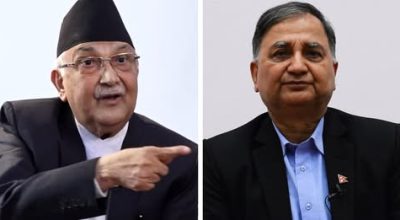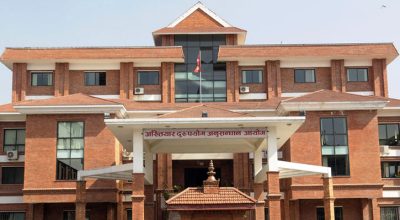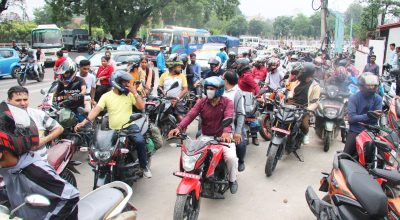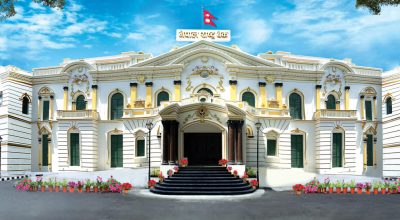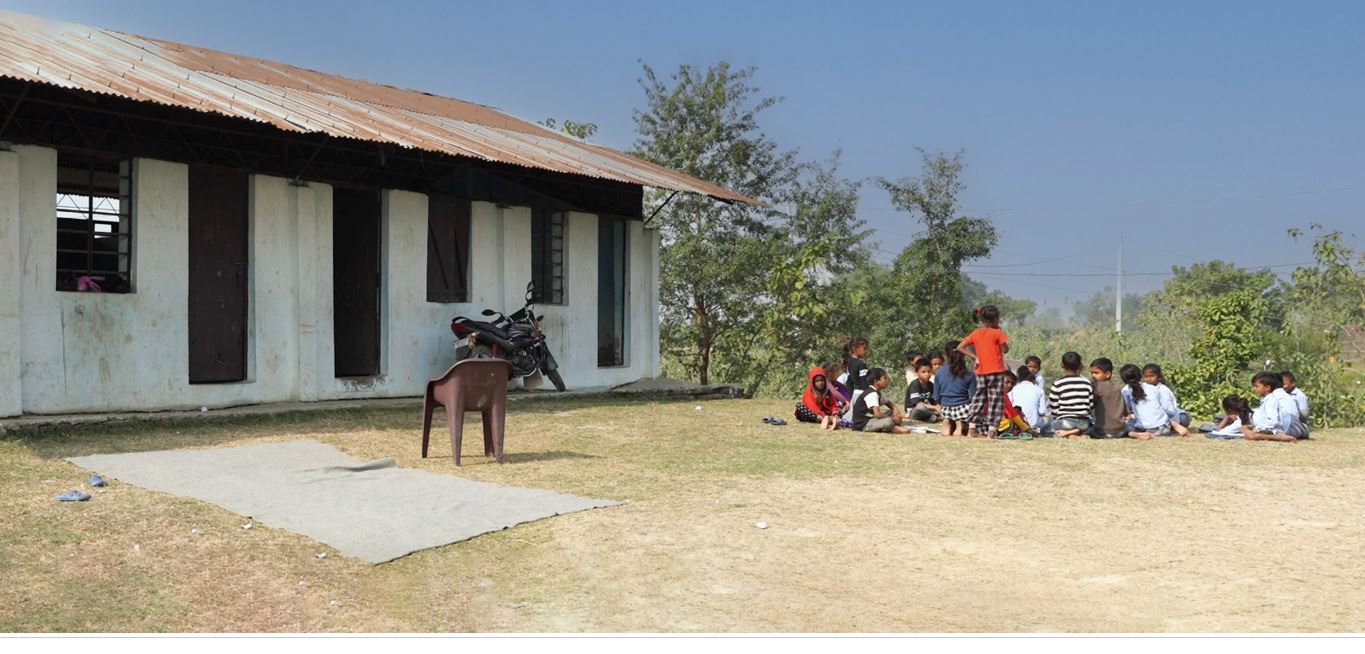
Tikaram Sunar/Chandra Dev Shah
Janakpurdham, Dec 21: Biltu Mandal, a resident Bideha municipality-4 in Dhanusha, faced family concerns over his decision to enroll his daughter in the local National Primary Secondary School. It was the incidence of some years ago. However, he was firm in his decision and send the daughter to the school.
When questioned about the cause of the family’s concern regarding the school choice, Biltu explained that his family was opposed to sending the child to a school where children from the Jhijha settlement were admitted. It is believed that ancestors of Jhijha folks were allegedly engaged in looting and dacoity, leading to the discriminatory social perception against the community.
Presently in class five, Mandal’s daughter is one of 124 students in the school (from class one to five), with the vast majority, except for four, belonging to the Dalit community: Paswan and Mahara surnames.
However, Mandal is not sure whether his decision was right whenever he assesses the current situation of the school. While ancestral background was not his primary concern, the status of the school and settlement now worries him. He said, “Sometimes I questions myself whether I am ruining the future of my child by not sending her to a school with good educational atmosphere.”
Birendra Paswan interrupted Mandal to express dissatisfaction over societal discrimination against Jhijha based on ancestral issues. He proclaimed that their community is now self-sufficient and relies on hardship and labor.
Mukesh Paswan, a member of Ward No. 4, who was listening nearby, said despite carrying a history of 63 years of establishment, the school was neglected by the State in the past and present, too. The school was established in 2017 BS. He accused the government from the federal to local levels of overlooking the issues of Jhikha folks and the future of their children.
The village, located 30 kilometers east-south from Janakpur, the capital of Madhesh Province, was reportedly plagued by poverty, unemployment and lack of education in the past, forcing the people to resort to ‘looting’ to meet their survival needs.
Journalist Shailendra Mahato, well-aware of the issues of Jhijha, stated that foreign employment, farming, daily wage labor, and other occupations are now the identities of the village.
A local Mukesh said although Jhijha folks have started other occupations since decades for dignified life, they are still neglected. Shree Rastriya Primary School can be taken as the example, he added.
‘The school is not in anyone’s priority and no one is paying attention for making arrangement of teachers and the physical infrastructures development. The local level also does not show its interest to take ownership of the school, which is snatching the rights of our children to quality basic education”, mentioned Mukesh.
Rastriya Primary School was established in 2017 BS and is one of the oldest government schools established in this area, but the school does not have its own name board. The school has been using one bighas and 17 kattas of land which is not under its ownership.
Most of guardians said they have been feeling more humiliated after none of the governments formed since the then Panchayat paid any attention for the identity of the school, and arrangement of teachers and physical infrastructures.
A guardian Birendra Paswan shared that they feel so sorry while seeing their dream of making the future of new generation bright by imparting quality education at their door steps shattered.
A relief quota teacher Jay Prakash Paswan, who has been teaching at the school for the past 13 years, viewed that they could not made arrangement of teachers and infrastructures even after guardians, school management committee and himself made efforts for the same.
Head teacher Bhogendra Maharan (Yadav) shared that problems have been encountered in the teaching-learning activities for not being able to manage the physical infrastructures and teachers. “There was only one teacher at this school when I arrived here in 2018. Three teachers were sent here on relief quota after approaching the district education office many times asking for teachers. But these teachers were transferred to another school without even consulting us,” he complained.
In the meantime, the efforts that we have put in for improving the school have almost been wasted. The number of students is going down. However, we have been trying to convince the students and parents that the problem would be resolved. We are still not sure if the problem will be resolved any time soon, he added.
Four teachers’ quotas are allocated for the school and among them two are teachers and one is for a female teacher for the ECD. There are only two teachers at the school at present and students from Grade 1 to 5 are taught in two groups at the same time.
Since the last one year the day meal that used to be given to the students has been suspended due to some misunderstanding between the school and the municipality. There is complain that not only the three tiers of the government, but even the lawmakers elected from this area have not shown any interest in improving the situation at the school.
“Last time we requested a lawmaker from this area to take initiatives for the allocation of funds from the parliamentary constituency development fund for constructing the compound wall and for managing essential services at the school. Instead, that lawmaker managed to mobilize Rs 2.5 million for constructing a temple right next to the school and Rs 1.5 million for building the ghat of a local pond,” the locals said in a chorous.
Wajib Pramani, Chair of Ward No. 4 of the Municipality, said they talked to the authorities several times for managing teachers for the school, but all in vain. “Instead, the Municipality has transferred two teachers at the school who were hired under relief quota on deputation to another school,” Pramani expressed his frustration.
School Management Committee chair Surendra Paswan said efforts are being made to resolve the problem and improve the situation of the school after holding talks with the stakeholders, including the Mayor and the chief administrative officer, among others.
“It was said that initiatives could not be taken for resolving the school-related problems for absence of a school management committee. Now, we have formed the school management committee under my leadership. The committee has discussed with the Municipality on the urgent need of constructing the compound wall, school building and management of teachers. We have been given assurances for the same. Let’s see, what happens,” he said.
Eighty-seven households in this settlement belong to the Paswan community and 20 to the Mahara community.
Before this, more than 200 Paswan families from this settlement were relocated to Lalbandi, providing them land, in 1978. RSS Nepal






